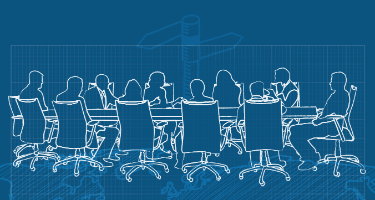This article was originally published on June 4, 2021 in our 2021 "Women in the Law" Business Edition.
Throughout my career in health care litigation, nothing has been more rewarding than enjoying the privilege of defending and supporting women in medicine. Not only do I personally hold high regard for their profession, it is particularly remarkable to see these powerful women soar in their careers. While the presence of women in medicine has been traced back to the 18th century, women historically have fought to rise from ancillary roles to positions of their choice. Women in law have traveled a similar path. Once women were allowed equal access to obtain medical and legal degrees, they still faced the challenge of being accepted into the practice by their male peers and suffered through the disparity in career advancement and benefits. The notion that these careers were better suited for men has proven to be unfounded. By nature, women possess skills that statistically refute such thought. In this past year more than ever, we have come to appreciate the compassion, strength and bravery that is required of health care providers. While women have made tremendous strides, we must not forget the challenges women have endured, the progress we have made and the steps required to continue toward gender equality.
The Evolution of Women’s Empowerment
Witnessing the surge of women entering into careers of law and medicine has been incredibly uplifting. In years past, the ratio of men to women in these fields was vast in comparison to modern statistics. According to the Association of American Medical Colleges in 2017, for the first time, the majority of first-year medical students were women and by 2019, the majority of all enrolled medical students were women. According to the American Bar Association, women have consistently accounted for the majority of all students in ABA-approved law schools for the past several years. Such success can be attributed to our own change in attitude.
Women have become more assertive in selecting a profession of their choice, discounting prior stereotypes that certain careers were meant for men. Those women who dared cross into what were once thought of as male-dominated fields, have paved the way and dramatically narrowed the prior underrepresentation. We have increasingly closed the gap of disparity in compensation and advancement in both law and medicine. In turn, we are seeing women prevail as managing partners and chiefs of staff, among other positions of power. Thankfully, the momentum of women succeeding in both fields is on an upward trajectory.
It is no surprise that certain published studies on the topic of gender performance in fields of law and medicine demonstrate that women possess traits that have led to success in certain areas, surpassing men. One study suggests that women have a higher success rate than men in litigation while a different study reveals that women doctors have a lower mortality rate than men in their patient population. In the study comparing legal skills published in 2018 by Premonition Analytics, female partners outperformed male partners by 12.72 percent, while female associates outperformed their male counterparts by 2.53 percent. In a study published in JAMA Internal Medicine, the mortality rates suggested that if male doctors practiced as effectively as their female counterparts, we would see 32,000 additional lives being saved annually.
While these are isolated studies, some authorities believe that women succeed in part, due to the differing characteristics between genders. As examples, women are thought to be better equipped in areas of multi-tasking, social cognition, stress tolerance, compromise, and communication skills. They are also perceived to be more credible and compassionate. It is a proud moment for us all to witness the strong, confident women of today who foray into the career of their choice, without hesitation, without doubt, knowing that they are the best person for the job.
Today, we can talk enthusiastically of women’s empowerment as a movement that has been evolving for decades. Empowerment is defined, in general, as “a process for becoming stronger and more confident, especially in the act of taking control of one’s life and claiming one’s rights.” “Claiming one’s rights” particularly epitomizes our quest for equality in not only wage and promotion but in perception, attitude, and treatment.
In the Eye of the Beholder: Who Said It’s a Man’s Job?
Even while women were beginning to break down career barriers for both law and medicine, there remained the attitude that we simply could not do the job as well. Women were not perceived as possessing the potential to be skilled litigators or surgeons and certainly were not thought of as being able to enjoy the success rate, the clientele, or the respect as that of our counterparts. Despite the tremendous social growth, unfortunately, there continues to exist distinct differences in the challenges women still face that sets us apart from “the other side.” Unfortunately, notwithstanding the superior performance of women in law and medicine, there still exists a lack of gender equality.
Over the years as women were beginning to demonstrate prominence in these fields, they also encountered the infamous adjectives “bossy,” “bitchy,” “hysterical,” and “emotional,” that were very specific to women who exuded power and strength. As society has identified and rebuked these characterizations as gender-specific labels, we are still experiencing what might be characterized as euphemisms, simply labels with the same effect but in a kinder gentler form, i.e. we are no longer bitchy or emotional, yet we are now simply “overreacting” or “overly sensitive.”
I once had a male lawyer write in his moving papers that I “casually sauntered into the courtroom.” At first blush, this seems nothing more than a ridiculous absurdity, but it has stayed with me for all of these years. Of course, it is a description that has no relevance whatsoever to the matter that was at hand and was clearly an attempt to demean his female opponent with such peculiar detail. The next line in the moving papers stated “… she then announced in her annoyingly soft voice …” The undertone of the attack is much more clear to me now than it was at that time. Unfortunately, this type of commentary is a clear reflection of certain male attitudes toward their female counterparts. Were these comments as to me as a lawyer or to me as a female? What does this say about the male adversary who thought it necessary to besmirch me in this manner … was he just being bitchy and emotional?
Recognition and identification are key in the process of our own journey to empowerment. One must recognize her self-worth and power, as well as identify personal goals and proceed to fulfill such aspirations without undue influence. Claiming one’s rights is a “must” for professional women. Each has the right to influence social change for herself and for others. This does not necessarily always translate to the need for overt action. Our inner peace is just as important and is the core from which our confidence and strength develop. We shall never allow words to impact our progress. He who speaks foolish words is the real fool.
Standing Your Ground (Or Simply Believing in Yourself)
Once we believe in ourselves, our principles, and our moral and ethical conviction, we are on our way to empowerment. In the quest to rigorously defend my clients, I notice that my female clients, despite their higher education, knowledge, and long list of achievements, are treated differently in the litigation setting than their male counterparts. It is as if all that they have endured through medical school and training has been left behind as they are sitting across a lawyer in a deposition.
This unfortunately, rings true even if the interrogating lawyer is a female. It has been said for years that women tend to be “people pleasers” or that we have an extra sensitivity chip and while that accurately describes some of us, we ought not allow those positive virtues to turn into shortcomings or openings for vulnerability. We need not become calloused and jaded to cater to this way of thinking, as the key is to remain true to ourselves while still deflecting the antiquated social attitudes toward women.
Whether it is a female physician, nurse, therapist or hospital administrator, the lawyer on the other side of the desk has a preconceived notion that intimidation is the key to effective cross-examination. The same lawyer will have a different attitude and proceed with more respect and less confrontation when deposing a male professional. This may be by nature and not even a product of intention. Yet, this inherent bias exists as a method of breaking down confidence and stripping the witness of all of her accomplishments in a matter of a few hours.
In preparation of witnesses for deposition or trial, one of the most important factors, is the instillation ofconfidence, which takes us back to the principle of empowerment. While it is our human nature to be nervous and to have a fear of the unknown, our health care clients need to be reminded that medicine is their specialty, their passion, their expertise, and that no lawyer will be able to fully comprehend what their day-to-day practice entails. It is imperative to remind them to remain confident and strong as if they are in real-time, acting as health care providers answering questions about their care, rather than as a defendant in a legal process. In doing so, they will be able to control the deposition process by refusing to allow intimidation to destroy who they are as compassionate and competent care providers.
Inspire and Promote from Within: The Continuation of Empowerment
Over the years, I have been told by female associates that they once believed they would never work for another female partner again. The phrase “girl-on-girl hate” was explained to me as essentially referring to women competing with other women in the industry. Women in superior positions as supervisors or partners were perceived as providing opportunity for growth and achievement to the males over the females. This, unfortunately, also extended to their attitude and treatment of the female associates. As noted, many of us have witnessed opposing female lawyers treating the defendant female health care providers differently than males in the same position. This is unfortunately counterintuitive and demonstrative of our weaknesses. One of the most empowering things we can do for ourselves is to demonstrate support for others, to enable others to grow strong and confident.
As women reflect on how far we have come toward fair and equal representation, it is imperative that we act as the cornerstone for one another. We are continuing to break barriers, diminish underrepresentation, and close the gap of disparity. Whether we are women lawyers, doctors, or other professionals, we must reinforce in one another strength and confidence, so that each of us can enjoy empowerment.
Constance Endelicato is an accomplished trial lawyer with 30 years of experience in defending healthcare professionals. She is a Certified Professional in Healthcare Risk Management and a member of ABOTA with Advocate ranking. She is the chair of ASHRM's Education Development Task Force and a member of ASHRM's Education and Content Committee. She is a past president of her local Chapter, SCAHRM.
































